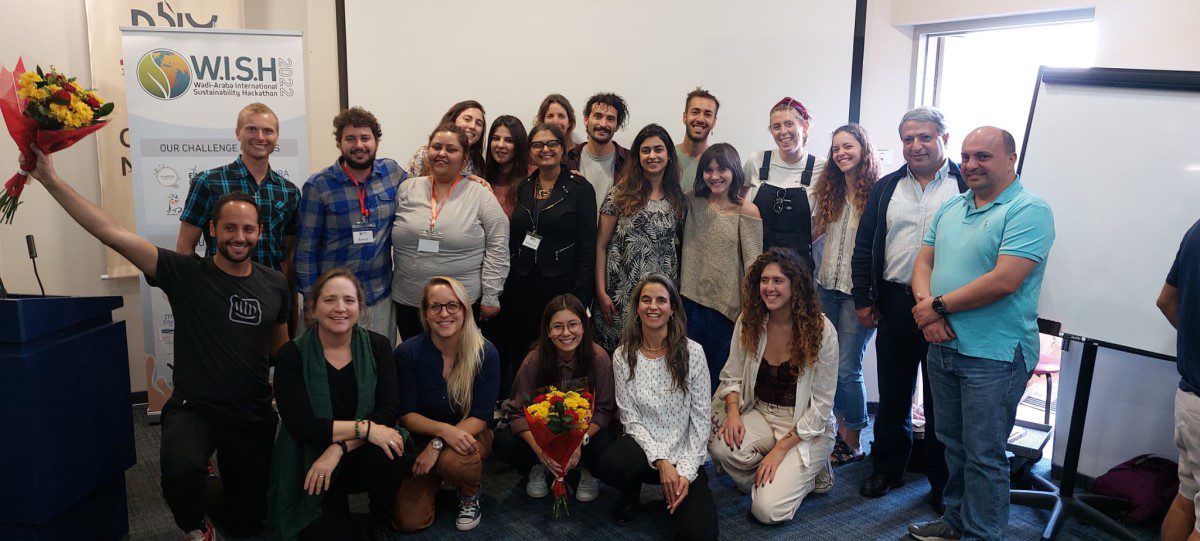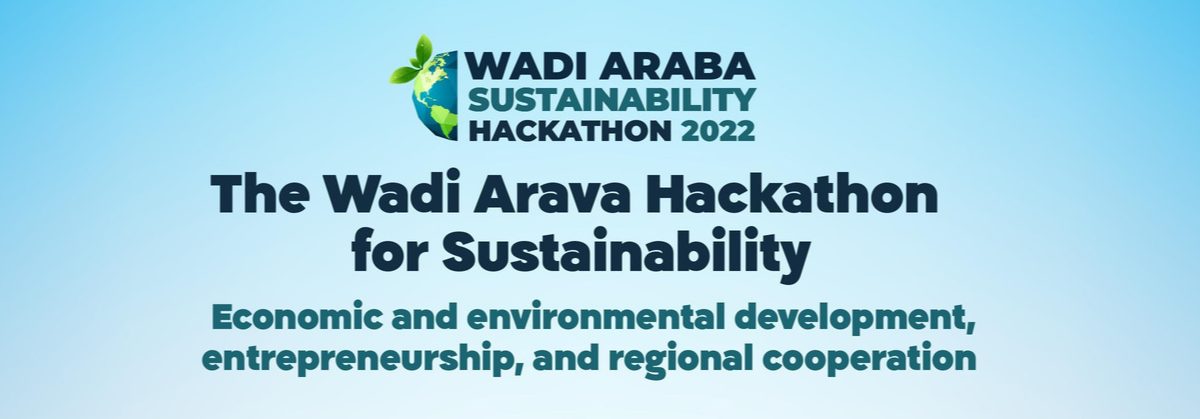November 27 – December 2, 2022
The final presentations and awards ceremony for the week-long hackathon in the Arava were held this Friday. Participants from Jordan, Palestine, Israel, Morocco, Kenya and the UAE all worked on solving issues of local industry and agriculture.
The program was initiated and managed by Arava Institute alumni Drs Rina Kedem and Suleiman Halaseh along with partners from the Kibbutz Industries Association, and was sponsored by the Arava Institute as well as an array of NGOs,businesses, local government entities, and academic institutions.
Arava Institute alum Adnan Jaber participated in the Hackathon and served as event co-host as well, alongside Dr. Kedem. Quoting Bertrand Russel, Jaber reminded the audience that
“the only thing that will redeem mankind is cooperation,” and that the best time to start cooperation is yesterday.
Problems addressed by participants included:
- Purification and reuse of wastewater from the Yotvata dairy factory
- Optimizing agro-voltaic arrays
- Monitoring the growth of micro-algae grown inside water tanks without damaging the algae
- Managing the population of Indian House Crows, a dangerous, invasive species in the region
- Efficient use of water and electricity to cool cows at the Yahel Dairy Farm
- Optimizing results by creating fish and date dual-use farms
The panel of judges included representatives from the business and startup communities as well as academia, including Institute Board members- Dr. Ahman Nasser (currently of the Volcani Institute) and Manar Sarie (an alumna).
Winners were awarded long-term mentorships from the Peres Center for Peace and Innovation and the Abu Dhabi-based DANA Global Accelerator. The winning project, CoolCow, which provides a more economic and environmentally-friendly way to cool cows at the Yahel Dairy Farm, was awarded a mentorship from the Google for Startups Accelerator, as well as a monetary prize.
One participant hailing from Morocco remarked that she
“did not expect that one week would be enough to make a wonderful family with 30 people….”
“We didn’t just share a work space,” she went on. “We shared love. We came with a purpose to solve environmental problems. We are here not only as Moroccans, Israelis, Jordanians, Palestinians, rather we are here as humans. We had a goal – we were motivated and excited to start working.”


